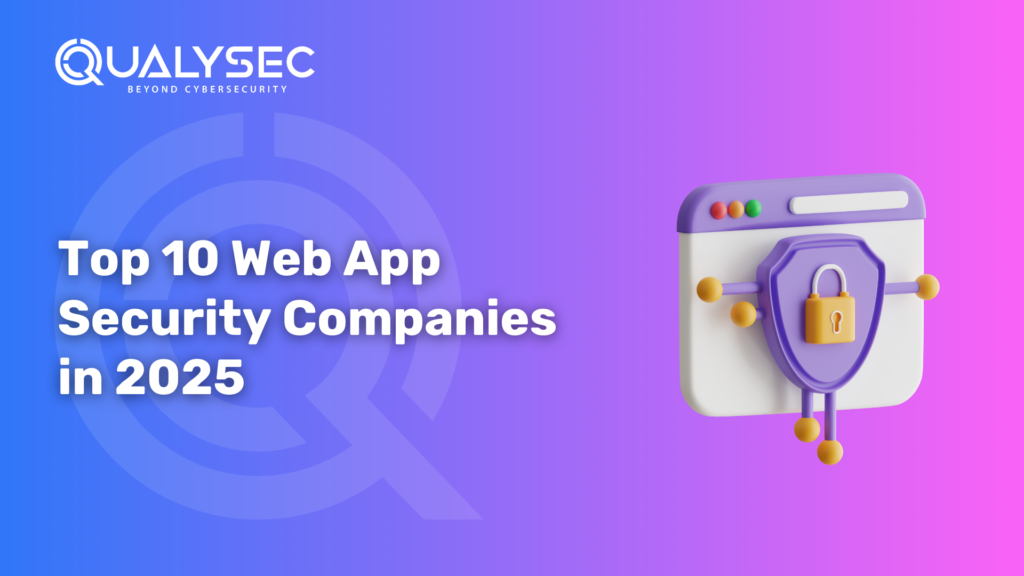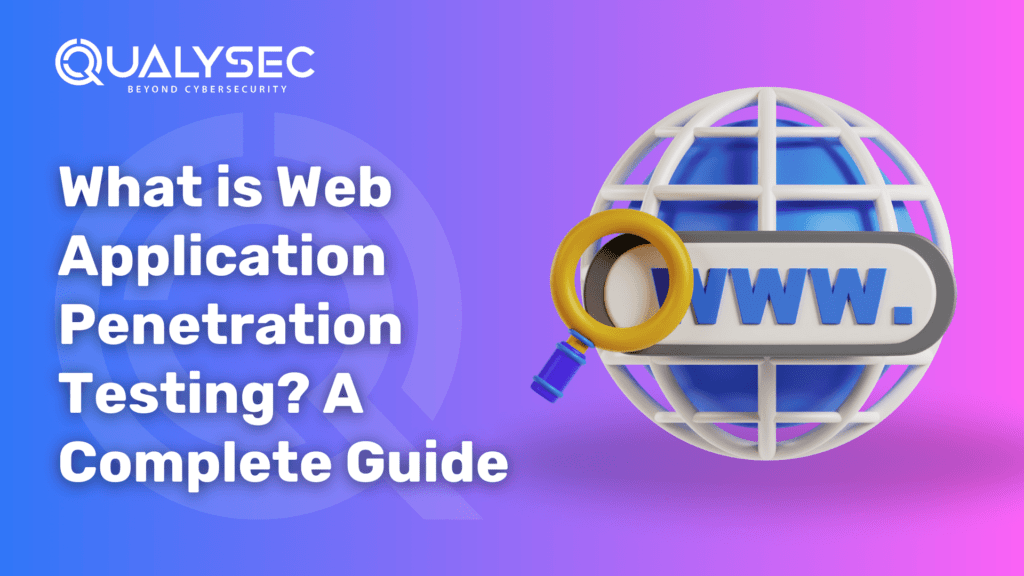Top 10 Web App Security Companies in 2025
Cybercrime will be costing $10.5 trillion a year by 2025, and that is a global threat, Cybersecurity Ventures states. To provide some context, this is well over double India’s estimated GDP for 2024–25. A ransomware attack in Australia on an IVF clinic revealed 700GB of personal information. With such sophisticated attacks, it is not only sufficient to have a good security plan, but you need to collaborate with one of the leading cybersecurity companies so that you remain ahead of your potential hackers. We have compiled a list of 10 of the best web app security companies in 2025 that can protect your business. Top Web App Security Companies to Know in 2025 Here is a list of web app security industry leaders with penetration testing, cloud security, and AI-based threat intelligence expertise. These web app security industry leaders offer innovative solutions to assist businesses in protecting themselves against changing cyber threats. 10 Best Web App Security Companies Worldwide 1. Microsoft Security: Cloud-Powered Threat Intelligence & Identity Protection Key solutions: Cloud security, threat detection, identity management Microsoft Security offers web application firewall testing that combines products such as Azure Sentinel (SIEM), Defender for Endpoint, and identity protection services. Their zero-trust architecture and cloud-native security services form the basis for their stature as a premier provider in cybersecurity. Microsoft has been a major player in historically defending against advanced, nation-state cyberattacks focused on government organizations and large enterprises. Key strengths: AI-driven threat intelligence for real-time threat detection and mitigation. Smooth integration with Microsoft’s productivity suite and cloud platforms. 2. CrowdStrike: AI-Driven Endpoint Protection & Incident Response Key solutions: Endpoint security, Threat detection powered by AI The CrowdStrike Falcon platform offers AI-powered endpoint security and real-time threat intelligence for governments and enterprises. CrowdStrike was key to mitigating the SolarWinds supply chain attack in 2021 and supporting organizations in navigating one of the most sophisticated cyberattacks in recent history. Key strengths: 3. Qualysec: The Global Leader in Offensive Security & Penetration Testing Key solutions: Penetration testing, security audits, bug bounty-driven security Qualysec is a pioneer in offensive security and has expertise in best web app firewall, vulnerability assessments, and compliance audits for fintech, SaaS, and enterprise companies. Based on a bug bounty-driven security model, AppSecure uses ethical hackers to replicate real-world cyberattacks and expose key vulnerabilities before the attackers get a chance. Recognized and applauded by bug bounty programs from PayPal, LinkedIn, Amazon, Reddit, and Meta, Qualysec has secured top-growth start-ups as well as Fortune 500 corporations fortifying their security stance. Regulatory compliance is also ensured by the company, positioning it as the go-to entity for enterprises managing sensitive financial as well as user information. Key strengths: 4. Palo Alto Networks: AI-Powered Cloud Security & Zero Trust Protection Key solutions: Next-gen firewalls, cloud security powered by AI Palo Alto Networks is a forerunner in network security offering solutions for zero-trust architectures and AI-driven cloud security. Their security solution has proved critical to detecting and remedying nation-state cyber threats in finance and healthcare. Key strengths: Prisma Cloud provides broad security across multi-cloud environments. Artificial intelligence-powered threat detection fights advanced persistent threats (APTs). 5. Fortinet: High-Performance Network Security & Malware Protection Key solutions: Firewalls, network security, cloud security solutions Fortinet provides powerful firewalls and cloud security solutions for enterprise and telecom carriers. Fortinet maintains a customer base in multiple verticals such as telecommunications, healthcare, and financial industries. : Key strengths: 6. Cisco Secure: Enterprise-Level Network & Endpoint Protection Key solutions: Network security, zero-trust security, web app security Cisco Secure delivers comprehensive network and endpoint protection, with a focus on zero-trust security architecture for companies. Cisco’s cyber defense architecture has helped countries protect international companies from major data breaches and hybrid cloud security. Key strengths: 7. Trend Micro: Cloud Security & AI-Driven Threat Intelligence Key solutions: Cloud security, endpoint protection, threat intelligence Trend Micro is a worldwide expert in web app penetration testing and AI-driven threat intelligence, assisting organizations in protecting their workloads on AWS, Azure, and Google Cloud. The company’s XDR—that is, Extended Detection and Response—solution increases the visibility of threats across endpoints, email, clouds, and networks. Key strengths: 8. Zscaler: Cloud Security & Zero Trust Exchange Primary solutions: Cloud security, secure web gateways Zscaler is a pioneer in cloud-based security services, providing solutions that provide fast, secure links between applications, devices, and users over any network. Their Zero Trust Exchange solution is designed to protect business networks and information using a zero-trust model in which any user or device must be verified before being permitted access. Examples of work include Zscaler partnering with Siemens in their digital transformation work, and with United Airlines in enhancing their threat detection. Key strengths: 9. Tenable (Nessus): Vulnerability Management & Risk Assessment Key solutions: Vulnerability management, risk assessment Tenable is a frontrunner in cybersecurity vulnerability control, notably for its Nessus software, the world’s most broadly used vulnerability assessment product. The business enterprise enables companies to discover, investigate, and prioritize vulnerabilities, both on-premises and cloud-primarily based owners, everywhere on their assault surface. Tenable has more than 44,000 clients, inclusive of 65 percent of all Fortune 500 companies. Key Strengths: 10. Wipro Key solutions: IT consulting, cybersecurity services This is one of the world’s top information technology, consulting, and business process companies, with a complete array of web application security testing solutions. Wipro provides cybersecurity services encompassing threat management, risk compliance, identity management, and much more, across a range of industries worldwide. Wipro has engaged with leading banking institutions to improve their cybersecurity processes for compliance and to protect them from cyber-attacks. Key strengths: Why Choosing the Right Cybersecurity Partner Matters One data breach today costs companies an average of $4.45 million. Selecting the proper cybersecurity service provider is crucial to safeguard data, financial resources, and reputation. You require a cybersecurity partner with the expertise for: Conclusion Cyber attacks are becoming sophisticated, making it better to choose the right cybersecurity partner. Businesses need more than security tools, much more important are the professionals who can find and remediate vulnerabilities before






